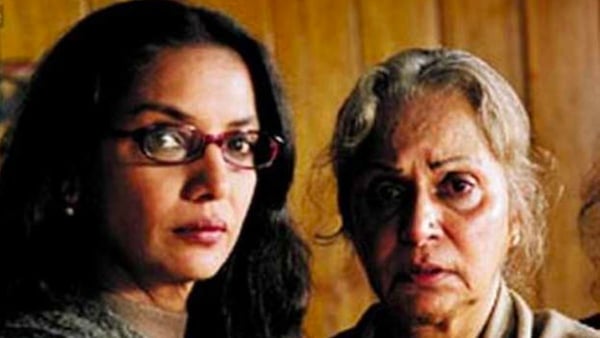15 Park Avenue turns 15: Konkona Sen-Sharma’s poignant performance buoyed the film’s grim narrative
As 15 Park Avenue turns a year older, here’s a revisit to the film that reintroduced the modern Bengali to then-uncomfortable subjects like mental illness.

Last Updated: 10.47 AM, Jan 07, 2022
15 Park Avenue, Aparna Sen’s 2005 drama, was a nuanced work on mental illness and caregiving. The National-Award-winning film closely follows Meethi (Konkona Sen-Sharma), a young woman suffering from schizophrenia while she tries to navigate her life.
Her small-knit but uber protective family unit consists of an elder sister Anjali (Shabana Azmi), who shields Meethi passionately, scared that she might be hurt (in more ways than one) by the external world.
Arguably among Sen-Sharma’s more compelling works, the film takes a deep dive into Meethi’s warped sense of reality and how her conviction makes her even more compelling than the ‘normal’ characters around her.
One of Anjali’s (Anu) questions to Meethi’s psychiatrist Dr Kunal (played by Dhritiman Chatterjee) lies at the crux of this film.
When discussing Meethi’s increasing hallucinations and positing its ill-effects, Kunal reiterates how dangerous these visions are, only to be interrupted by Anjali’s simplistic question, “What right do we have to take away the happiness Meethi gets from her imaginary world?” she asks.
It is at this juncture that Sen’s intentions with 15 Park Avenue become crystal clear. Her lens never leaves Meethi’s side, always lending an empathetic ear to her make-belief world, where she resides happily with her husband and children. Not only does the film normalise mental ill-health, it goes an extra mile trying to explain it to laymen, who may lack the sensitivity to pick up on such things.
Sen burrowed deep within the recesses of Meethi’s mind to excavate the possible reasons why she is a patient of the illness. That Meethi’s curated world has a perfect family setup is an easy deduction since it’s just a mere reflection of her unfulfilled desires and half-achieved dreams.
But Sen also portrays an excruciatingly painful account of sexual abuse that triggered this illness. Moreover, Meethi’s condition, Sen shows, could have been propelled by an underlying biological vulnerability. Owing to a life mostly led in episodes of acute isolation after the tragic loss of her parents, Meethi’s mental bandwidth reduced considerably. Sen-Sharma’s prowess as an actress is evident in the way she chose to showcase Meethi. Adamant, sweet, often selfish, and near-sighted, Meethi is all about the instantaneous pleasures that life has to offer her.

But her inability to understand complex human interpersonal dynamics stands as an impediment for her own family members, who try to deal with her ‘madness’ in unconventional ways.
And thus, we have a scene depicting Anu giving a lecture on quantum mechanics in her college, while her family members get hold of an ojha (exorcist) to ‘treat’ Meethi. While Meethi faces this unsolicited intervention, she cries, hits out and protests multiple times.
Through this scene, Sen underlined how regressive modern, intellectual societies can also get. Meethi’s struggles with her social sphere is hardly something she realizes fully, especially since never resides in the real world. The brunt instead is faced by Anu, her elder cousin who guards Meethi vehemently, protecting her from all possible harm. Through Azmi’s character, Sen wove a narrative on caregiving and the selflessness involved in it.

It’s evident from Anu’s sacrifices that there is very little left of her life which she can term her own. A major part of it is occupied by Meethi’s needs.
Where Sen aces her game of subtlety is in the way she chooses to portray Anu. Sen not only posits her as a martyr, but also reminds viewers that being one is never easy. Anu has her moments of sheer rage and repulsion as well, where she wishes to lash out at Meethi and maybe even curse her for bringing this fate upon the family. But she schools herself everytime, taking the higher moral ground.

The crests and troughs that Anu undergoes are also fascinating and only natural. Sen navigates each relationship with care and explains to her audiences (through cinematic motifs) that mental illness is just as unassumingly present in our daily lives as any other physical ailment. Sen almost tutors her viewers to understand the fact and follow the necessary protocol. But 15 Park Avenue is anything but pedantic. Even though the film deals with several grim issues, it never feels anything akin to a moral science lesson that most Indian films tend to lean towards.
15 Park Avenue seamlessly depicted an imperfect world with its broken people. But Sen’s mastery at her craft made it look oh-so-natural, much like a Sunday lunch in any of our homes, with differences of opinions and outlooks.
Watch the film here .

